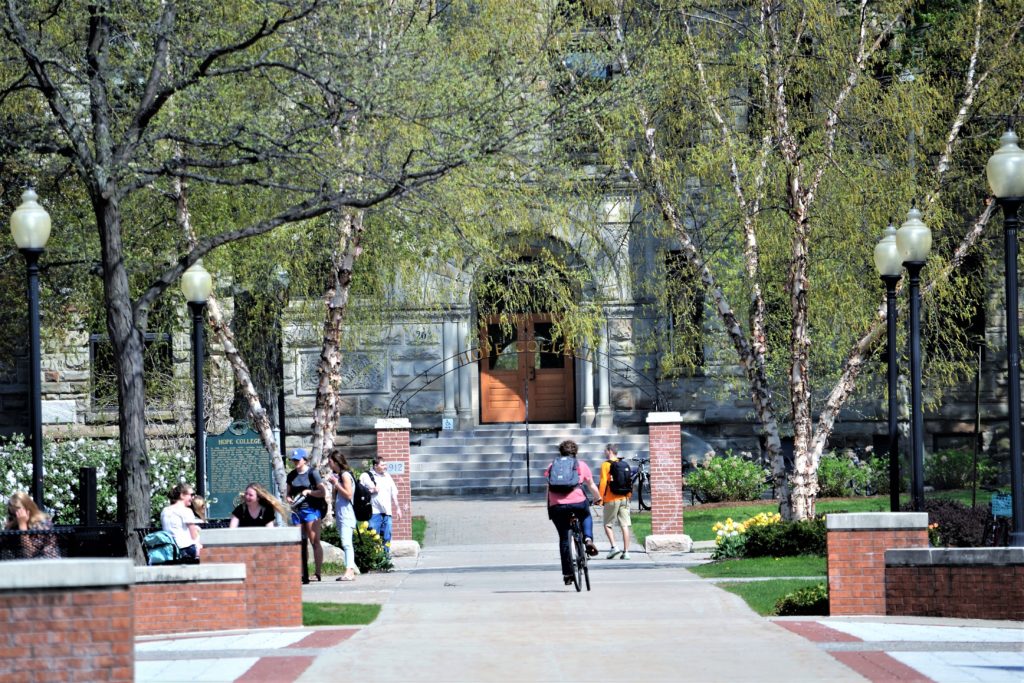Building Your Perfect College List
Applying to college begins with a simple yet confounding question: where should you apply? These are four years which will shape your future, and while some students have a school already in mind, most are more unsure where to apply, how many schools to apply to, or what even makes a college list “good.”
We’ve discussed college application strategy and college lists before, but in this article, we’ll go into the details of how to build a college list which suits your needs specifically. We’ll discuss how many schools you should have on it, reach, target, and safety schools, and how to make sure you have the right schools on your list. Let’s get started!
Reach, Target, and Safety
We use reach, target, and safety to describe your chances of getting into various schools on your college list.
- Reach school you have a chance to get into, but it will be very difficult.
- Target schools you are an average admitted student for, and have a good chance of gaining acceptance to.
- Safety schools you are likely or guaranteed admission to.
We use GPA and standardized test scores to determine which category a school falls into for our students. If your GPA is below the school’s average, but within the admitted range, the school is a reach. If your GPA is about average for an admitted student, a school is a target. If your GPA is well above average, the school is a safety.
All Ivy League and Ivy+ schools always count as reaches for all students. These schools have admissions rates below 10%; no matter how high your grades, or how impressive your extracurriculars, these schools are always going to be difficult to get into.
Colleges publish the average GPA and test scores of admitted students; we include these in our college guides for your convenience.
Now that you understand what makes a school a target, reach, or safety for you, we can apply this knowledge to building your college list.
Determining your college goals
What you want out of college should determine where you apply to college. There’s no point in applying to attend a school if you wouldn’t enjoy actually being there. We consider the following criteria with our students:
- Prestige. While attending a school with a recognizable name doesn’t guarantee a better education, there are opportunities available at top schools you can’t find elsewhere. (See our business guide for some examples).
- Location. Whether you want to stay close to home, take advantage of in-state tuition, or move close to family, where a school is located can often influence a decision.
- Cost. College is very expensive, and we’ve covered paying for it before (several times even). The cost of one school over another, or the possibility of gaining financial aid, can influence your college list.
- Majors. Not every school has every program. UT Austin offers Aerospace engineering, which is an uncommon discipline, while UChicago only has a single engineering major. If you are interested in a specific major, this should influence where you apply. Some schools have much stronger programs for one major than their program as a whole as well; Purdue engineering is ranked higher than Purdue as a whole.
- Size. A school’s size can greatly affect some students, while others don’t mind it at all. Small and large schools often have very different atmospheres, and these will attract different kinds of students.
- Extracurriculars. Being recruited for a sport, or wanting to continue with a passion in college are common. While all colleges have extracurricular offerings, if you want to pursue a particularly niche interest, you may need to select your schools carefully.
Overall, you should determine what kind of school you would fit into well as a student, determine which schools have those traits, and then add them to your college list.

How many schools should you apply to?
This depends on your goals. We’ll give you three examples of past Ivy Scholars students who had different goals for their college admissions process, and describe their college lists.
Student A knew exactly where they wanted to go to college, Vanderbilt, and had the grades and test scores necessary to make them a competitive applicant. The rest of their college list was a mix of a few reaches and targets which would give them a similar experience to Vanderbilt if they were not admitted. Here’s what their list looked like:
- Reach: Vanderbilt, Duke
- Target: WashU, Emory, Tulane, Wake Forest
- Safety: UT Austin, Washington & Lee
The purpose of this list is to target a specific kind of school and experience, and make sure the student ends up in the sort of environment that will best support their educational goals. Student A ended up getting into Vanderbilt ED.
Student B wasn’t sure exactly where they wanted to attend, but knew they wanted to go to a top school. While they had great grades and test scores, we knew the application process would be competitive, as we helped them apply to some of the most competitive schools in the country. Here’s what their list looked like:
- Reach: Harvard, Yale, Princeton, Stanford, UChicago, UPenn, MIT, Columbia, Brown, Cornell, Dartmouth, Duke, Northwestern, Vanderbilt, Johns Hopkins, Rice
- Target: WashU, Emory, UCLA
- Safety: UT Austin
This was a very aggressive application strategy, because this student’s primary goal was to get into a top college; prestige was the most important criteria. Therefore, we helped them build a list which maximized their chances of getting into a top school. Student B ended up attending Brown.
Student C had competitive grades and test scores, but their main concern was financial aid. They wanted to make sure they attended a college which would provide merit aid, so we helped them apply to many schools where they were a top applicant. Here’s what their list looked like:
- Reach: UCLA, UC Berkeley, UMich, NYU
- Target: UT Austin, USC
- Safety: Texas A&M, University of Alabama, Penn State, Oregon State, University of Miami, Rutgers, Purdue, University of Georgia, Fordham
This list was very heavy on safety schools, as these were the schools where student C’s grades and test scores made them most likely to receive merit aid. They received a number of generous aid offers, and ended up attending Oregon State.
A note on using UT Austin as a safety:
Due to UT Austin’s guaranteed admissions policy, students who are content with the College of Arts and Sciences can use the school as a safety if they qualify for guaranteed admission. We do not recommend counting UT Austin as a safety if you are applying to a more competitive college, such as business or engineering.
Finalizing your list
When we work with students, college lists start out fluid, and crystalize over time, as priorities change and students become more aware of what their options are and what they want out of their college experience.
A good way to do this is to visit college campuses, and see for yourself whether or not the atmosphere and opportunities are right for you. You don’t need to visit every school on your list, but visiting a few kinds of schools will help you narrow down what you’re looking for. This is especially true for large vs. small schools, urban vs. rural vs. college town milieus, and different areas of the country. Knowing you don’t want to attend a large urban school for instance, cuts many universities off a potential college list.
We recommend having your college list finalized by the time you start writing your essays. Of course, edits can still be made, but you should not be writing essays for schools you don’t end up applying to; that’s too much wasted effort. For this reason, we recommend starting to build your college list in the spring of your junior year, to give you plenty of time to research and tweak.
Final Thoughts
Knowing where you will apply to college is the first step to actually doing so, and we hope that these steps will help guide you through building your own perfect college list. Every student’s list will be different, tailored to their own needs and desires, but they can all benefit from the same steps when building one.
Deciding where to apply to college is a big step, and some students want advice when doing so. If you want to learn more about how we can help you build the most strategically optimal college list, or how else we can help you with your application process, schedule a free consultation with us. We have a depth of experience helping students get into their dream schools, and are always happy to hear from you.








